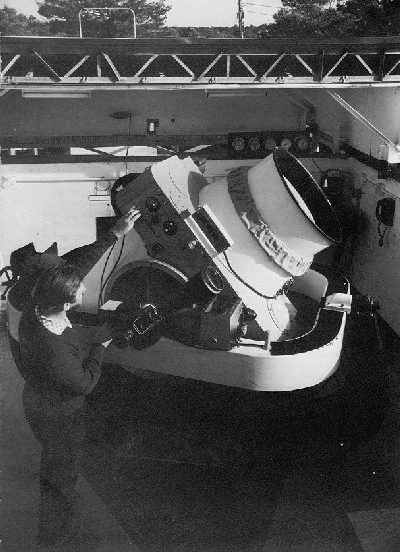|
Orbital Debris Co-ordination Working Group
The Orbital Debris Co-ordination Working Group (ODCWG) is one of the working groups of the International Organization for Standardization's Technical Committee 20/Subcommittee 14 TC20/SC14 "Spacecraft Systems and Operations". History The Orbital Debris Co-ordination Working Group was formed by unanimous agreement at the May 2003 Plenary meeting of TC20/SC14. Description The ODCWG recognizes that the mitigation of orbital space debris is an international concern, thus international, comprehensive and cohesive standards (namely ISO TC20/SC14) must be adopted to address the issue. Currently six standards projects are in development, and a further seven project proposals are being prepared. The first debris mitigation standards were expected in 2008, with more International Standards, technical specifications or technical reports expected to be published through to 2011–2012. See also *Inter-Agency Space Debris Coordination Committee References External linksThe ODCWG's publi ... [...More Info...] [...Related Items...] OR: [Wikipedia] [Google] [Baidu] |
International Organization For Standardization
The International Organization for Standardization (ISO ; ; ) is an independent, non-governmental, international standard development organization composed of representatives from the national standards organizations of member countries. Membership requirements are given in Article 3 of the ISO Statutes. ISO was founded on 23 February 1947, and () it has published over 25,000 international standards covering almost all aspects of technology and manufacturing. It has over 800 technical committees (TCs) and subcommittees (SCs) to take care of standards development. The organization develops and publishes international standards in technical and nontechnical fields, including everything from manufactured products and technology to food safety, transport, IT, agriculture, and healthcare. More specialized topics like electrical and electronic engineering are instead handled by the International Electrotechnical Commission.Editors of Encyclopedia Britannica. 3 June 2021.Inte ... [...More Info...] [...Related Items...] OR: [Wikipedia] [Google] [Baidu] |
Space Debris
Space debris (also known as space junk, space pollution, space waste, space trash, space garbage, or cosmic debris) are defunct human-made objects in spaceprincipally in Earth orbitwhich no longer serve a useful function. These include derelict spacecraft (nonfunctional spacecraft and abandoned launch vehicle stages), mission-related debris, and particularly numerous in-Earth orbit, fragmentation debris from the breakup of derelict rocket bodies and spacecraft. In addition to derelict human-made objects left in orbit, space debris includes fragments from disintegration, erosion, or collisions; solidified liquids expelled from spacecraft; unburned particles from solid rocket motors; and even paint flecks. Space debris represents a risk to spacecraft. Space debris is typically a negative externality. It creates an external cost on others from the initial action to launch or use a spacecraft in near-Earth orbit, a cost that is typically not taken into account nor fully accoun ... [...More Info...] [...Related Items...] OR: [Wikipedia] [Google] [Baidu] |
Inter-Agency Space Debris Coordination Committee
The Inter-Agency Space Debris Coordination Committee (IADC) is an inter-governmental forum whose aim is to co-ordinate efforts to deal with debris in orbit around the Earth founded in 1993. The primary purposes of the IADC is information exchange on space debris research activities, facilitating opportunities for joint research, and reviewing progress of ongoing activities. All of these are designed to support identification of space debris mitigation options. Debris mitigation guidance In March 2020, the organization has developed recommendations that each program or project establish and document a feasible Space Debris Mitigation Plan. The plan should include the following items: * A management plan addressing space debris mitigation activities * A plan for the assessment and mitigation of risks related to space debris, including applicable standards * The measures minimising the hazard related to malfunctions that have a potential for generating space debris * A plan for dis ... [...More Info...] [...Related Items...] OR: [Wikipedia] [Google] [Baidu] |
Space Debris
Space debris (also known as space junk, space pollution, space waste, space trash, space garbage, or cosmic debris) are defunct human-made objects in spaceprincipally in Earth orbitwhich no longer serve a useful function. These include derelict spacecraft (nonfunctional spacecraft and abandoned launch vehicle stages), mission-related debris, and particularly numerous in-Earth orbit, fragmentation debris from the breakup of derelict rocket bodies and spacecraft. In addition to derelict human-made objects left in orbit, space debris includes fragments from disintegration, erosion, or collisions; solidified liquids expelled from spacecraft; unburned particles from solid rocket motors; and even paint flecks. Space debris represents a risk to spacecraft. Space debris is typically a negative externality. It creates an external cost on others from the initial action to launch or use a spacecraft in near-Earth orbit, a cost that is typically not taken into account nor fully accoun ... [...More Info...] [...Related Items...] OR: [Wikipedia] [Google] [Baidu] |


